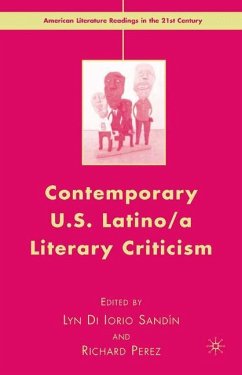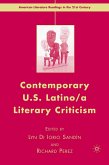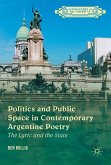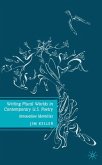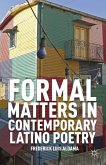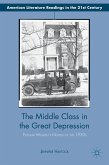Please note this is a 'Palgrave to Order' title (PTO). Stock of this book requires shipment from an overseas supplier. It will be delivered to you within 12 weeks. This is the first compilation of essays to bring together the most important U.S. Latino/a literary criticism of the last decade. This timely text has been long in coming as U.S. Latino/a literary criticism has grown exponentially throughout U.S universities since 1995.
"This collection brings together an impressive group of established and young scholars to produce a multi-layered, theoretically complex approach to the practices of Latino/a criticism. These essays continue the dialogue about ambivalent identities and the usefulness (or lack thereof) of contemporary literary theory in helping scholars tease out the meaning of Latino/a texts. It should prove a valuable and popular text for scholars and students of Latino/a literature." - Lisa Paravisini, Vassar College
"Welcome to 21st century literary criticism of the Americas, where the foreign is domestic, the strange familiar, and the presumed outsider is the ultimate insider. Free from the idea that Latino/a literature's work is identity politics, Contemporary US Latino/a Literary Criticism takes the path less taken and asks how does this literature offers alternative ways of understanding today's world. In contrast to most writing on the subject, this collection is also not about how Latinos are becoming Americans. Rather, it's about how the people of the United States are becoming Americans in a whole different way." - Frances Negrón-Muntaner, Professor of English and Latino Studies, Columbia University
"Welcome to 21st century literary criticism of the Americas, where the foreign is domestic, the strange familiar, and the presumed outsider is the ultimate insider. Free from the idea that Latino/a literature's work is identity politics, Contemporary US Latino/a Literary Criticism takes the path less taken and asks how does this literature offers alternative ways of understanding today's world. In contrast to most writing on the subject, this collection is also not about how Latinos are becoming Americans. Rather, it's about how the people of the United States are becoming Americans in a whole different way." - Frances Negrón-Muntaner, Professor of English and Latino Studies, Columbia University

